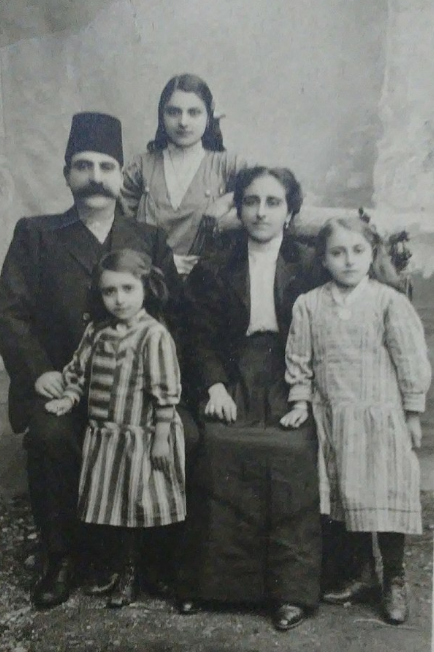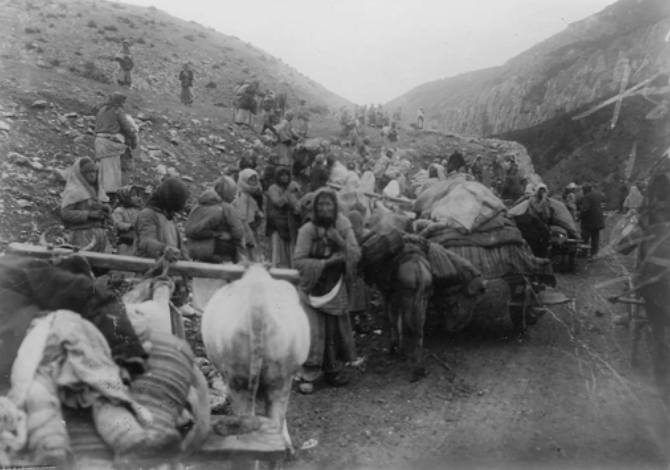Jacob Simpson, Research and Advocacy Associate
During World War I, at least 1.5 million Armenians were deported and massacred in the Ottoman Empire (modern-day Turkey).
Today, we can understand this 100-year-old genocide thanks to the brave testimony of survivors, photographs documenting the atrocities, and the detailed historical record-keeping of upstanders committed to truth. The tragedy of the Armenian genocide is an undeniable historical reality.
However, since the end of World War I, Turkey’s government has continually denied the genocide of Armenians.
In this context, denial does not simply mean words of denial. Turkish leaders have used violence and threats to intimidate anyone speaking out about the genocide. They have applied their geo-political power to dissuade other countries from acknowledging the genocide. They have published disinformation and harassed survivors and activists alike to silence calls for recognition and justice.
In the fall of 2021, I gave a talk at a Minnesota law school about the genocide of the Uyghurs in western China. During the Q&A section, several pro-Beijing students attacked the credibility of my remarks in an effort to intimidate me and deny the genocide.
I have done extensive research on the genocide of the Uyghurs. I have interviewed Uyghurs who have shared their first-hand experiences of persecution, intimidation, and genocide. Yet these students were able to shake my conviction.
I doubted myself and my advocacy in ways that I never had done before. This was the impact of denial.

The Ashjian family, all killed in 1915 in the Armenian Genocide: Takvor & Yeghisapet Ashjian & their daughters Eugenie, Hamaspur & Mariam in a photo from 1908 or 1910. Image by Jay Dobkin|CC BY-SA 1.0|License: https://creativecommons.org/licenses/by-sa/1.0/legalcode
What is the impact of 100 years of Turkish denial?
For activists and survivors, the impact has been a century of doubt, insecurity, and struggle.
No one can obtain justice for the atrocities of the Armenian genocide without a recognition of its existence, and in many cases, activists have been intimidated into silence
Survivors and descendants of survivors may question their own truths. We will never know how many victims were unable to move on or to confront their trauma because of the Turkish government’s campaign of denial.
But despite the power and impact of Turkey’s denialism; the truth is true. One hundred years after the genocide, governments around the world – including the United states – have recognized the genocide of the Armenians as what it was: a genocide.
The power of denial can only be countered by a commitment to truth. Because of brave activists, survivors, educators, and record-keepers, we know the truth about the Armenian genocide.




